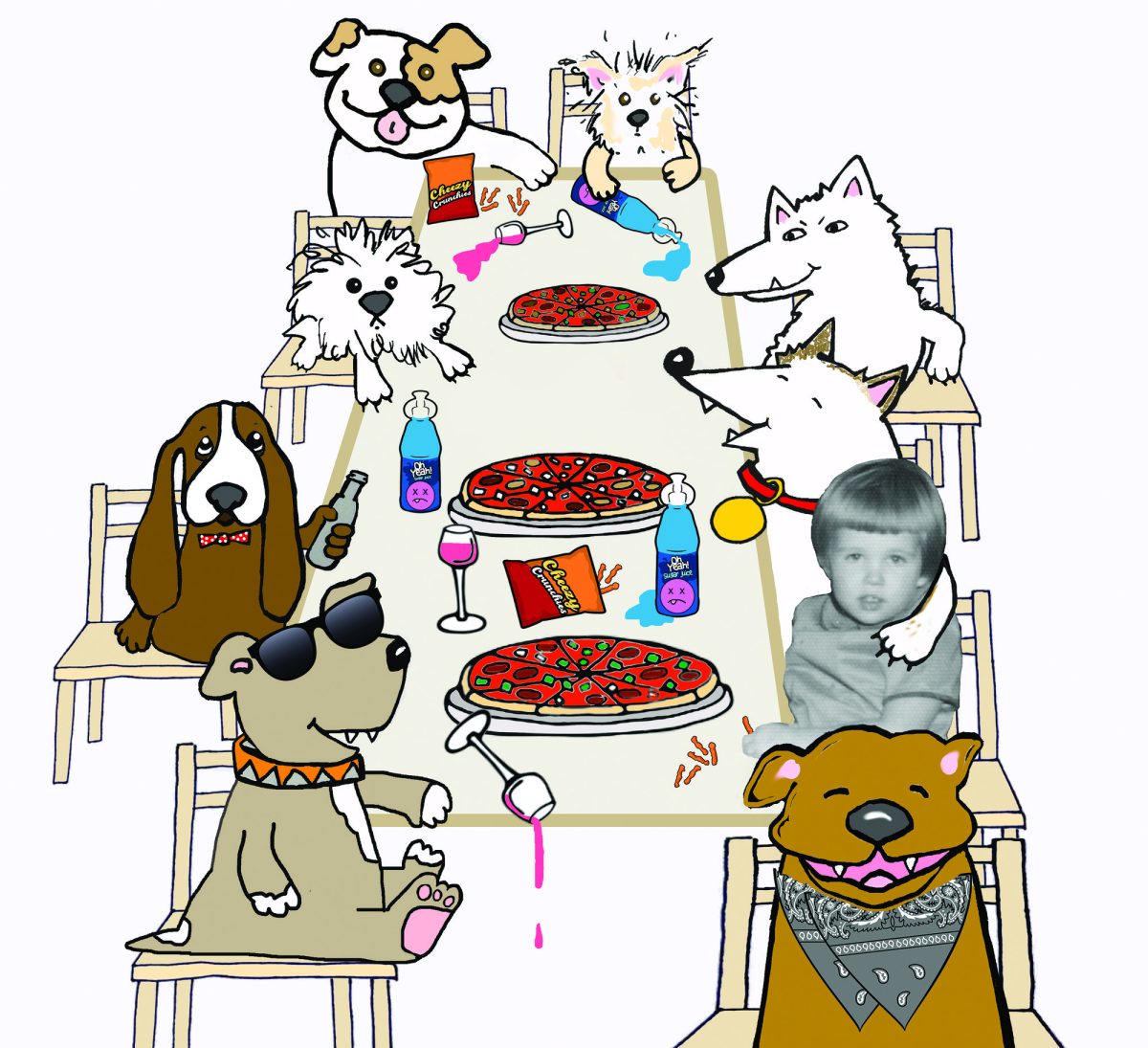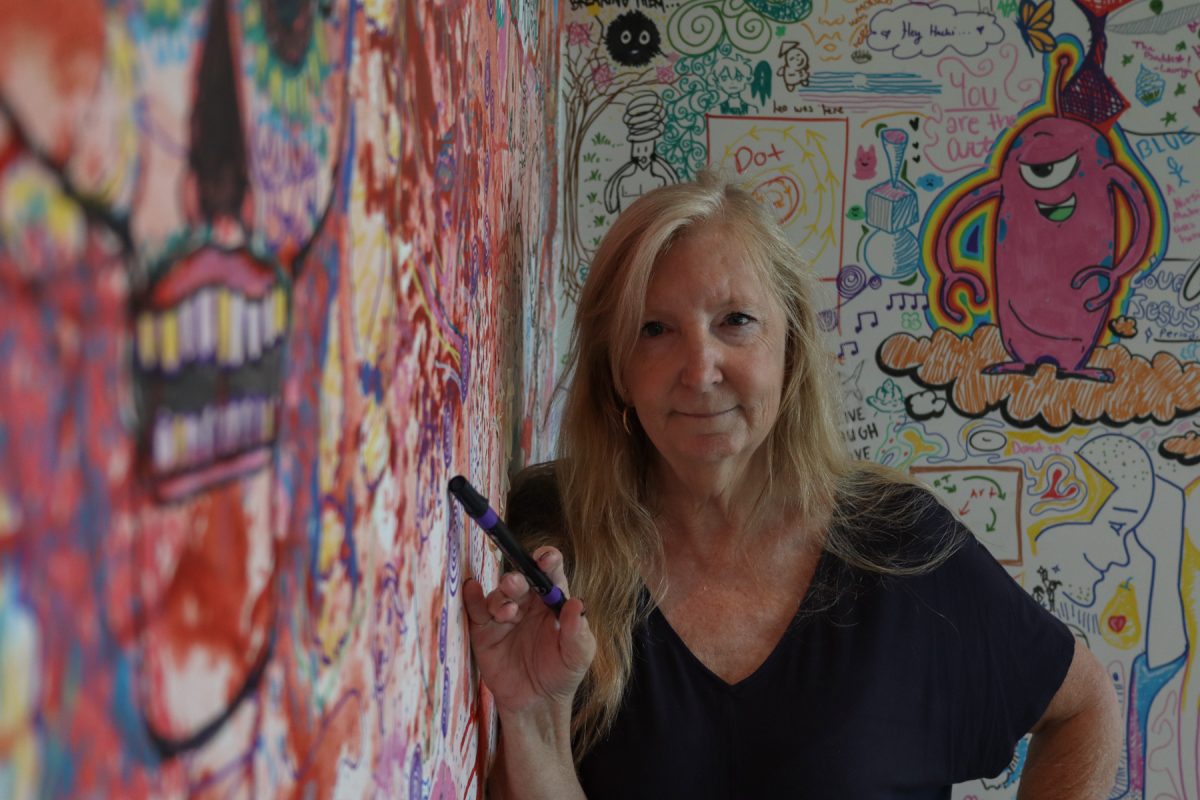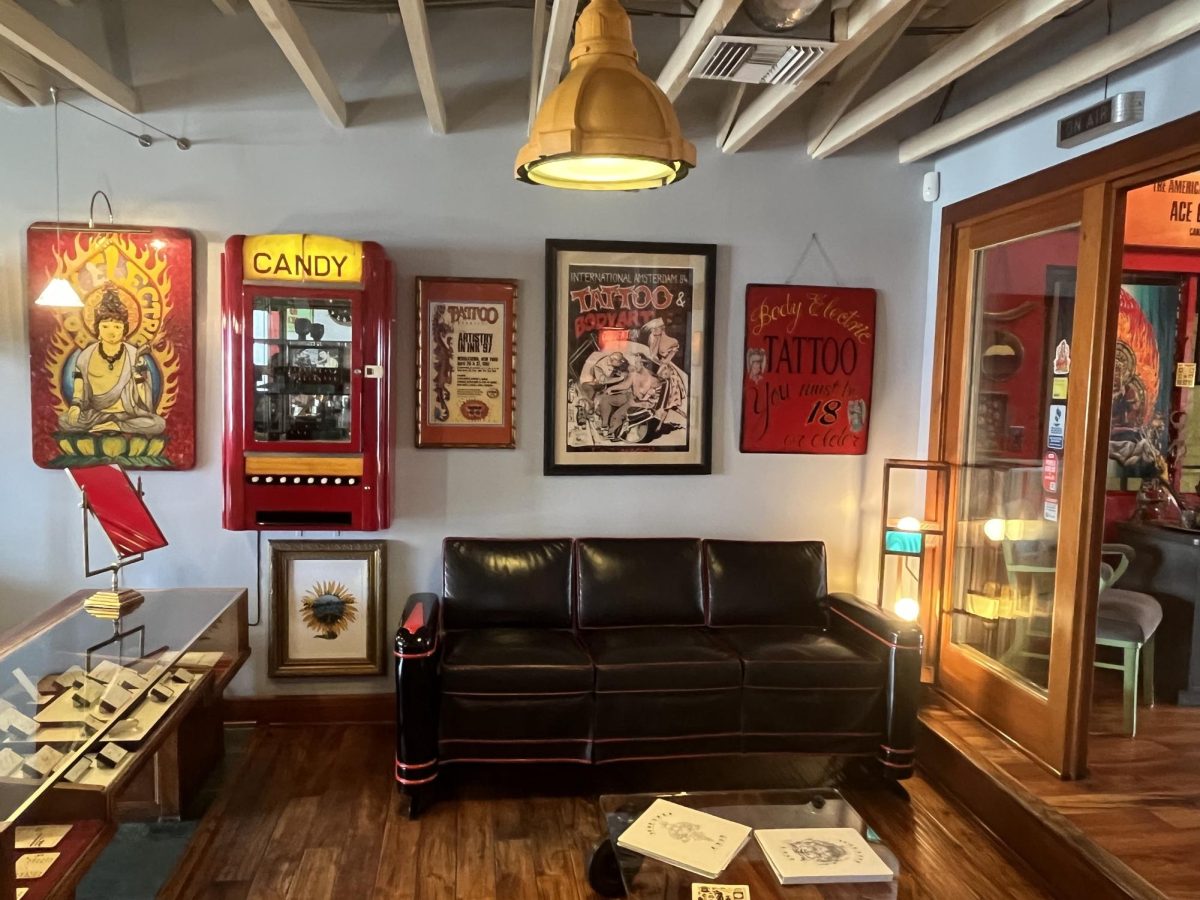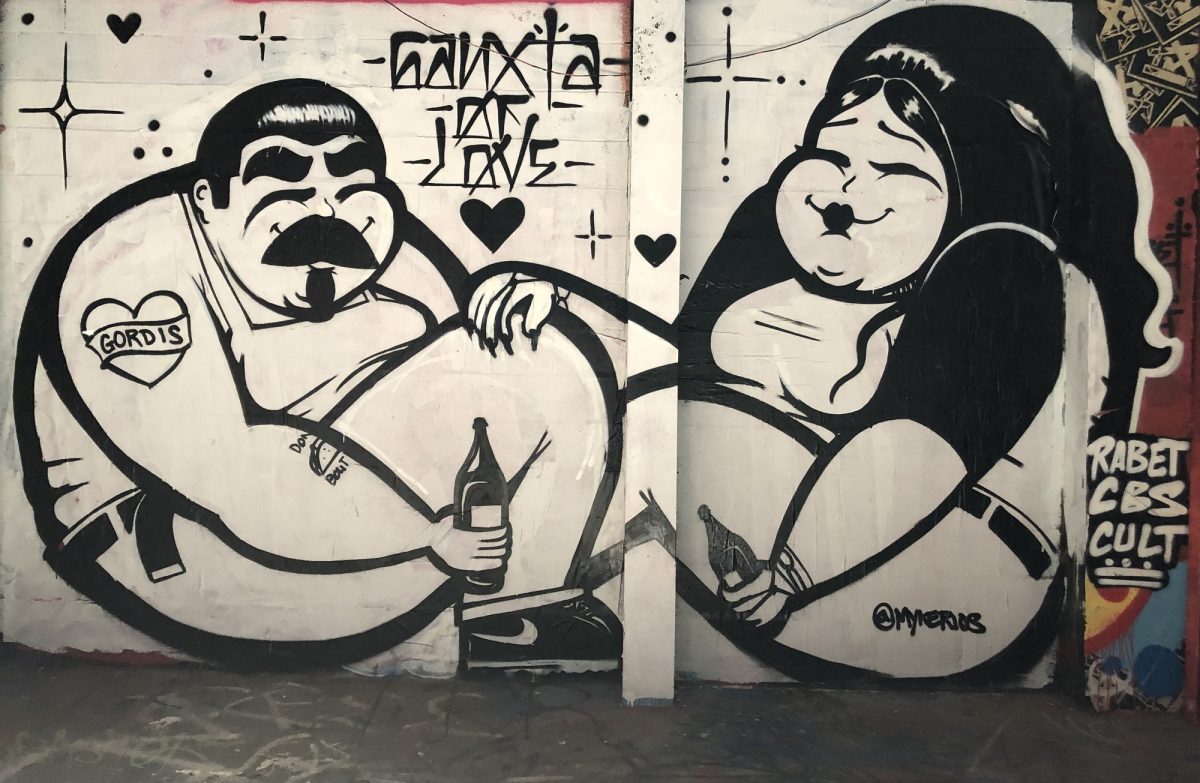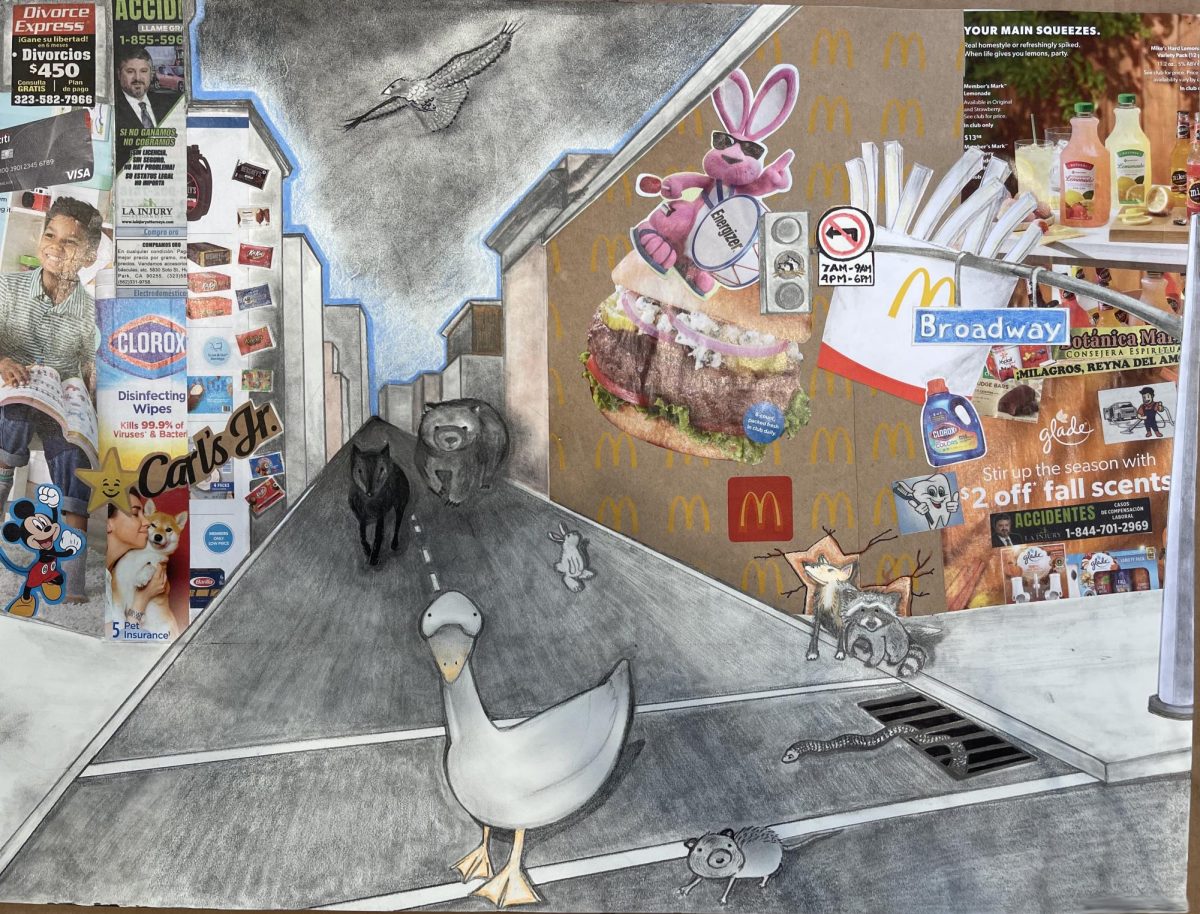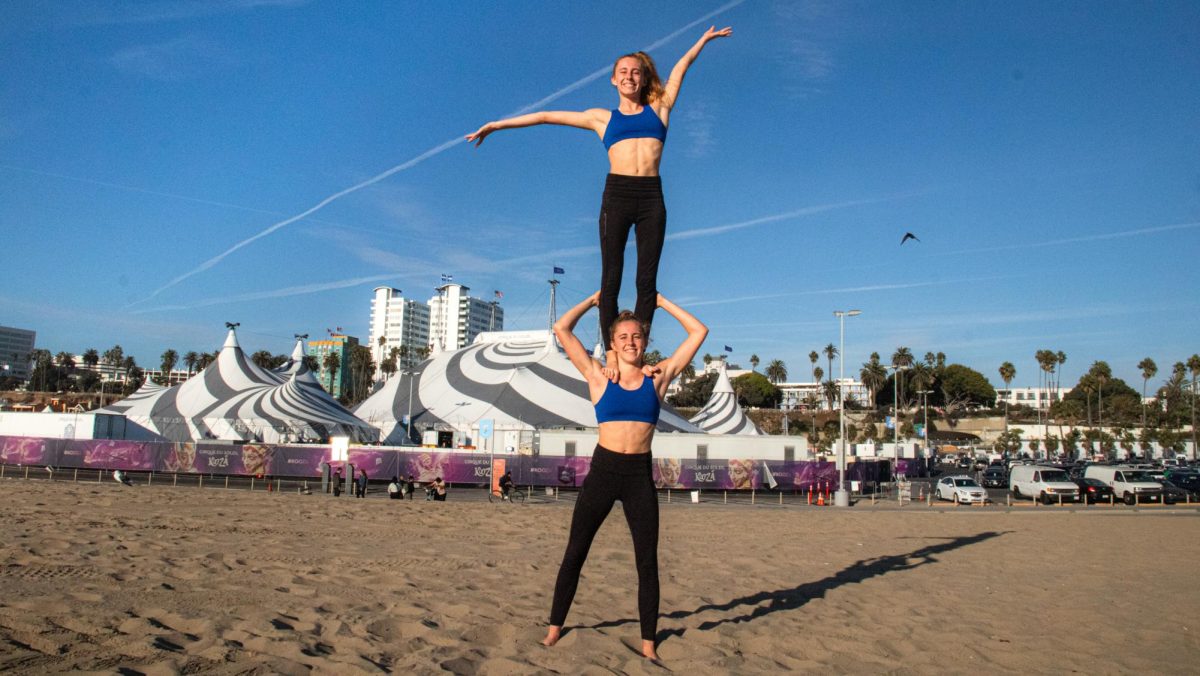The first time I remember falling in love, I was four years old.
I was at a community carnival thrown by SoCal Gas and discovered a fenced-in patch of dirt filled with puppies. There was nothing I wanted more than one of those dogs.
My dad had sternly warned my mom and me that morning: Bring home a goldfish or even a parakeet, but no puppy.
Still, the promise of carnival rides and cotton candy could not get me to leave that puppy pen. My mom finally gave up and left me there for the day.
Throughout the event, people applied to adopt a dog. If approved, their name was announced over a speaker. One by one, puppies were taken from the pen and handed to their new families.
My heart broke again and again with each adoption.
At the end of the day, there was one puppy left.
Like all frantic toddlers desperate to get what they wish for, I clung to that puppy and felt the tears welling up in my eyes. The volunteers struggled to get me to release it, and returned the puppy to the ground where it wriggled excitedly, happy at the chance to run and breathe.
But then – miraculously – I heard my name broadcast over the carnival sound system. My mom’s friends had secretly applied for me to get a dog.
I sat on the grass with my new puppy, a fuzzy light brown mutt with remnants of the dark brown markings, pointed ears and long nose of a Shepherd mixed with who-knows-what.
“What’s her name,” asked my mom. “Tippy,” I said, looking at the white tip at the end of her tail.
Lesson 1: Keep your friends close, and your enemies closer
When we got home, my dad issued an angry ultimatum. “That dog can stay the weekend, but it’s going to the pound first thing Monday.”
A tiny ball of fur no more than 10 weeks old, Tippy followed my dad everywhere for those two days.
She returned over and over to cuddle at his feet, even as he kicked her away. She sat and watched sports on TV with him all day on a Sunday. She cried when he left the room without her, and jumped up excitedly when he reentered.
On Monday morning, my dad mumbled gruffly that Tippy could stay another week. That was the last time he ever spoke of her not having a home with us.
Once she won over my dad, Tippy turned all of her attention to me.
I didn’t realize it at the time, but she had taught me a valuable lesson about subduing your adversary and picking your battles.
I grew up in a family suffocated by silence, held hostage by unspoken issues too complicated for me to understand.
Looking back, photos of my dead brother that hung on the wall hinted at the untreated grief and guilt that tore at my parents’ ability to be with each other.
My mom was exhausted holding down a full-time job, at times one or two part-time jobs, transporting kids to and from school, cooking, cleaning and doing laundry late into the night.
She struggled to find her place in a world that required her to work while also remaining subservient to my dad. He criticized her daily and made jokes at her expense despite the fact that she was contributing far more financially and emotionally.
My dad was crusted over by anger and disappointment – hating the life, community and family he ended up in – and mourning the loss of the life he imagined for himself. He was plagued by a deep homesickness for a culture and community that had disappeared.
Until he was 14, he grew up in a logging camp deep in the woods of the Pacific Northwest and he seemed happiest reminiscing about lumber mills and freight trains.
As I got older, I wish I had handled my dad more like Tippy did.
In order to keep the peace, Tippy faked acceptance of my dad’s position as ruler.
By comparison, I challenged his every command. The more I was punished, the more I fought back. The greater his attempts to control me, the more rebellious I got.
I have carried that stubborn commitment to my own sense of fairness and independence until this day. It can be admirable when challenging injustice. But it has made me unwilling to consider other people’s realities, and I grow impatient with people I disagree with.
I inherited my father’s quick anger and his need to win at all costs.
I wish I could be more like Tippy and seek to understand – rather than crushing – my opponents.
Lesson 2: Best friends are loyal and protective
The house we lived in when I was little had only two rooms—a living room connected to a kitchen and a bedroom. I had a small bed on the side of where my parents slept.
I snuck Tippy inside as often as possible, and she fell asleep hiding under my blanket.
On weekends and holidays, the two of us left the house at dawn and returned when the street lights came on.
Tippy protected me from other dogs, neighborhood bullies, possums, raccoons and other common L.A. street dangers. Once, in a dry river bed, she backed away from a rattlesnake and warned me to walk around to avoid a deadly encounter.
Tippy sat with me during every time-out my mom gave me. She hugged up on me after every yelling or beating from my father.
To avoid criticism, punishment, and worse, I stayed out of sight as much as possible, existing in my parents’ world only when I was forced home by darkness or for the occasional family meal.
Like a kid from a Peanuts cartoon, I lived just above ground level, while my parents existed in another dimension above me – “Wah, wah-wah, wah wah.”
The tension would build steadily into sudden eruptions of anger and violence. People would disappear – always emotionally and sometimes physically – and leave me on my own.
People, especially children, need companionship and comfort. For me – starting with Tippy and continuing for my whole life – a dog always filled that role.
Left alone for hours and sometimes days, I came to love that time with just me and a dog.
I learned to cook foods that were not only my own, but my dog’s favorites, especially fried peanut butter and bologna sandwiches.
I never cried in front of my dad no matter the physical or emotional pain. I was prideful. I didn’t want him to see me as weak or give him any sense that he could hurt me.
Tippy was the one I cried with.
Scientists, including Stanley Coren, author of The Intelligence of Dogs, have determined that “dogs are sensitive to emotional contagion, responding to the emotions of another without fully understanding what they are feeling.”
I first learned this from Tippy – that dogs sense and comfort humans in distress.
Lesson 3: People need dogs and dogs need people
The relationship between humans and canines dates back at least 15,000 years, and we have relied on each other for security, work, service, hunting and companionship.
Both dogs and humans release oxytocin when they are together, in the same way that the chemical is exchanged between infants and the people they bond with.
Dogs also teach us to enjoy life and appreciate the small things. They never care if you’re perfect, or look good or come in first.
They are just happy to be included.
When I was nine, Tippy and I attended a dog training class run by the Parks Department. Because the class was free and I was the only kid – all the other students were adults – I felt no pressure.
That also meant I didn’t pass any anxiety on to my dog. We just laughed and tried our best and enjoyed learning new things.
Unbelievably, we came in first in the class.
The instructor suggested that we enter a dog training competition at the L.A. County Fair in Pomona.
On the day of the event, I had never felt so nervous. The large crowd that gathered at the fairgrounds made it worse.
When it was our turn to run through the required off-leash exercises – heel walking, heel running, stay, come, fetch and return – we barely survived the excruciating fifteen minutes. Fear oozed from every pore of my body and enveloped me in an invisible, toxic cloud.
I fumbled through the course. Poor Tippy didn’t know what to do. She gave me troubled looks and struggled to understand my commands.
We came in dead last.
I have failed at many things. Nearly always, I had the skills and knowledge to succeed but allowed anxiety about being perfect, especially in front of others, to override the joy I got from the experience.
Lesson 4: Men are not dogs
When my dad left my mom and I, I was relieved. But my mom fell into a spiral of anger, depression and shame.
In an attempt to cheer her up, I gave her a T-shirt that said “The more I know men, the more I love my dog.”
The world often refers to men who cheat or lie as dogs. But, even at the risk of abuse or neglect, dogs remain loyal and attached to their people.
Men who lie and cheat are not dogs. Cats maybe. But not dogs.
Lesson 5: Be the person your dog thinks you are
Tippy modeled many life lessons.
Over time, all my dogs have been my teachers. They have taught me about patience, fairness, justice and joy.
However, I haven’t done a very good job of incorporating their lessons into my own thoughts and practices. This year, I got a shirt for myself.
It says “Be the person your dog thinks you are.”


